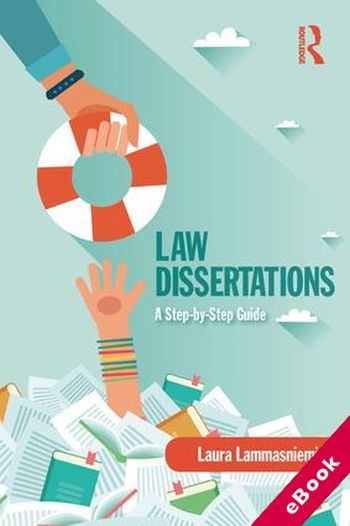
The device(s) you use to access the eBook content must be authorized with an Adobe ID before you download the product otherwise it will fail to register correctly.
For further information see https://www.wildy.com/ebook-formats
Once the order is confirmed an automated e-mail will be sent to you to allow you to download the eBook.
All eBooks are supplied firm sale and cannot be returned. If you believe there is a fault with your eBook then contact us on ebooks@wildy.com and we will help in resolving the issue. This does not affect your statutory rights.
Law Dissertations: A Step-by-Step Guide provides you with all the guidance and information you need to complete and succeed in your LLB, LLM or law-related dissertation. Written in a simple, clear format and with plenty of tools to help you to put the theory into practice, Laura Lammasniemi will show you how to make writing your law dissertation easy, without compromising intellectual rigour.
As well as explaining the process of research and outlining the various legal methodologies, the book also provides practical, step-by-step guidance on how to formulate a proposal, research plan, and literature review. Unlike other law research skills books, it includes a section on empirical research methodology and ethics for the benefit of students who are studying for a law-related degree.
Packed full of exercises, worked examples and tools for self-evaluation, this book is sure to become your essential guide, supporting you on every step of your journey in writing your law dissertation.